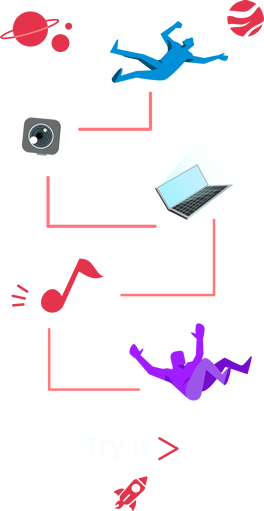The role of music in learning: how sounds contribute to academic success

Table of content
The role of music in learning: how sounds contribute to academic success - Introduction
Music is often touted as a powerful tool for enhancing academic performance, offering a unique blend of relaxation and cognitive benefits that can be especially valuable amidst the hustle of student life.
Amid the pressures of preparing for exams and the search for exceptional academic support services like https://scamfighter.net/, the importance of relaxation and stress management can easily be overlooked.
The night before an exam, with the weight of expectation bearing down, the idea that music could significantly influence our mental and physical state might seem far-fetched.
Is it possible that tuning into your favorite tracks could prime your brain for better learning?
Join us as we explore this intriguing possibility and uncover the science behind the power of music in education.

KEY TAKEAWAYS
Music Reduces Stress and Anxiety: Research highlights music's capacity to lower stress levels significantly, making it a vital tool for students. It acts as a natural stress reliever, enabling better focus and emotional management during exam preparations.
Enhances Concentration and Focus: Listening to music, especially classical compositions, activates brain areas responsible for attention. This can lead to improved cognitive functions, aiding students in processing and retaining information more efficiently.
Soothes Test Anxiety: Incorporating music into daily routines can alleviate the symptoms of test anxiety, fostering a calm and focused mind. The auditory experience of music provides a sense of tranquility, enhancing overall exam performance.
Alleviates Physical Discomfort: Music therapy has been shown to ease headaches and migraines, common ailments among students. By shifting attention away from pain, music allows for a more comfortable and prolonged study experience.
Improves Cognitive Processing: Studies suggest that music, particularly pieces with intricate musical techniques from over two centuries ago, boosts cognitive processes. This results in better organization of information, understanding complex subjects, and memorizing large amounts of data without extensive reading.
Music Helps Reduce Stress
Research indicates that immersing yourself in your favorite music can significantly lower stress levels during the intense preparation for an important exam.
Integrating music into your routine by playing your preferred tunes on platforms like iTunes could offer a remarkable transformation.

In moments of high stress and adrenaline, there’s scarcely a more effective remedy than the calming influence of a soothing melody or an empowering track that lifts your spirits.
Regardless of whether you’re navigating the challenges of high school or pursuing higher education, the harmonious embrace of music offers a serene backdrop, aiding in the identification and healthy management of stress sources.
Music: A Remedy for Test Anxiety
The specter of test anxiety, with its accompanying feelings of anger, irritation, and chronic fatigue, looms large in the life of a student facing significant exams or milestones.
Remarkably, integrating daily listening sessions of your favorite music emerges as a potent strategy for rejuvenating our spirits.

Much like a quality massage unwinds tense muscles, music possesses the extraordinary ability to soothe our minds, reducing anxiety to a whisper.
This simple act can dramatically transform your mental landscape, dissolving anxiety and sharpening focus for peak academic performance.
Music not only fosters a sense of tranquility but also hones concentration, enabling you to engage with your study materials without distraction.
While curating an extensive playlist might seem daunting amidst the myriad tasks and academic reviews demanding your attention, slipping on headphones offers an effortless and cost-effective boost to your exam day prowess.

Music Can Ease Headaches
For those who find themselves frequently battling migraines or enduring persistent headaches during lectures or while tackling assignments, a tranquil soundtrack may offer much-needed relief.
Research into music therapy's impact on students has illuminated its potential not just as a distraction but as a transformative tool in pain management.
Music has the remarkable ability to dissolve the negative thought patterns that often exacerbate our discomfort, gently nudging us away from dwelling on our pain towards more constructive pursuits.
The soothing strains of classical music, in particular, can provide solace for students who spend their nights immersed in study.
Allowing Mozart to fill the background could be the key to enhancing concentration, minimizing the urge to constantly check your phone or email, and fostering a more productive study environment.

Music Enhances Concentration
The misconception that music serves as a distraction, particularly during crucial study sessions or while crafting last-minute essays, has been debunked by recent research.
Far from being a hindrance, the right music can activate the areas of the brain associated with focus and attention.
Studies delving into the influence of sound on the brain have found that compositions from over two centuries ago, with their intricate musical techniques, are particularly effective in enhancing our cognitive processes.
These classical pieces possess an uncanny ability to aid in organizing information, grasping complex subjects, and memorizing vast quantities of data, all without the need to pore over extensive texts for hours on end.
This timeless music not only soothes but also sharpens our minds, fostering a deeper understanding and retention of knowledge.

How music contributes to academic success - Conclusion
In sum, music significantly enhances the academic landscape, serving as a crucial tool for stress reduction, focus improvement, and overall cognitive enhancement.
Its ability to alleviate anxiety, manage headaches, and sharpen concentration underscores its value in a student's learning toolkit.
Through the lens of scientific research and practical application, it's clear that whether for relaxation or cognitive stimulation, music's role in education transcends mere background noise.
As we navigate our educational journeys, the thoughtful incorporation of music can illuminate the path to achieving our highest academic potential.
Thanks for reading,
The CalypsoRoom Team
Frequently Asked Questions (FAQs)
What are the cognitive benefits of music in learning environments?
Music in learning environments can enhance cognitive abilities, including improved attention, memory, and executive functions. It stimulates different areas of the brain involved in language, reasoning, and problem-solving skills.
How does music influence memory and concentration in students?
Music positively influences memory and concentration by creating a conducive learning environment that can reduce stress and increase focus. Certain rhythms and melodies can enhance the brain's ability to encode and recall information.
Can background music improve academic performance?
Background music has the potential to improve academic performance by creating a motivational and emotionally engaging learning atmosphere. However, its effectiveness can vary based on individual preferences and the nature of the task.
What types of music are most effective for enhancing learning?
Music that is calming and has a steady rhythm, such as classical or instrumental genres, is most effective for enhancing learning. These types of music can help reduce distractions and improve concentration and mood.
How does music education impact child development?
Music education plays a significant role in child development by supporting emotional growth, social skills, and cognitive development. Learning to play an instrument or engage in musical activities enhances creativity, discipline, and coordination.
back
Written by CalypsoRoom Editorial Team
The CalypsoRoom Editorial Team is a skilled and diverse group of writers, researchers, and industry specialists who have access to Calypso's data and information in order to give you broad knowledge about the music industry as well as helpful advice to help you manage your music and dancing career.
Updated February 2024
Company number: 681223
James's Walk 31, Dublin, Ireland
contact@calypsoroom.com
+353 (89) 435 8928



